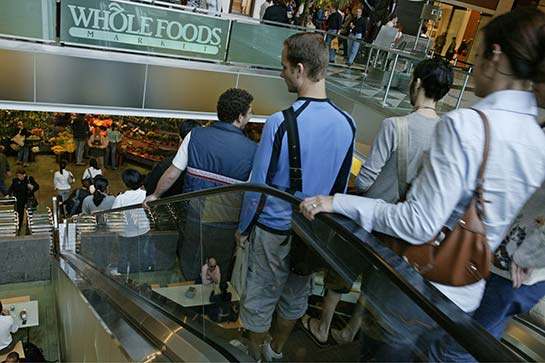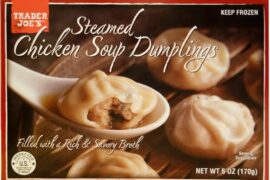Whole Foods Market Inc. (WFM), coping with unwholesome publicity after the New York City Department of Consumer Affairs (DCA) in June accused the upscale grocery chain of overcharging shoppers at nine of its stores in Manhattan and Brooklyn for pre-packaged meats, baked goods, seafood and dairy products, has settled the case.
While “refusing to consider the DCA’s initial demand for $1.5 million,” as declared in a Whole Foods website statement posted on December 28, “we agreed to pay $500,000 in order to put this issue behind us so that we can continue to focus our attention on providing our New York City customers with the highest level of quality and service.”
“Whether it’s a bodega in the Bronx or a national grocery store in Manhattan, we believe every business needs to treat its customers fairly and, with this agreement, we hope Whole Foods will deliver on its promise to its customers to correct their mistakes. DCA will also continue its vigilance in making sure New Yorkers are protected every time they check out at the grocery,” said DCA Commissioner Julie Menin.
 In the course of an investigation launched by the DCA earlier this year, 80 different types of pre-packaged products sold by Whole Foods were found to have mislabeled weights. Additionally, 89% of the packs reportedly did not meet the federal standard for the maximum amount that an individual package can deviate from the actual weight, which is set by the US Department of Commerce. The overcharging was said to be as high as $14.84 for a package of coconut shrimp.
In the course of an investigation launched by the DCA earlier this year, 80 different types of pre-packaged products sold by Whole Foods were found to have mislabeled weights. Additionally, 89% of the packs reportedly did not meet the federal standard for the maximum amount that an individual package can deviate from the actual weight, which is set by the US Department of Commerce. The overcharging was said to be as high as $14.84 for a package of coconut shrimp.
From the beginning, Whole Foods has vehemently denied the allegations, insisting it has never intentionally used deceptive practices to incorrectly charge customers.
The alleged overcharges were said to be especially prevalent in packages that had been labeled with exactly the same weight when it would be practically impossible for all of them to be identical in volume. These products included seafood, chicken, berries and vegetables. In some cases, this issue was found for the same exact products at multiple stores.

For example, the DCA inspected eight packages of chicken tenders, which were priced at $9.99 per pound. Shoppers who purchased these packs would have, on average, been overcharged by $4.13 – a profit of $33.04 for the eight packages. One package was allegedly overpriced by $4.85.
“We disagree with the DCA’s over reaching allegations and we are vigorously defending ourselves, Michael Sinatra, the Austin, Texas-headquartered company’s public affairs and public relations manager for the Northeast region, said in June. “We cooperated fully with the DCA from the beginning until we disagreed with their grossly excessive monetary demands. Despite our requests to the DCA, they have not provided evidence to back up their demands nor have they requested any additional information from us, but instead have taken this to the media to coerce us. Our customers are our number one stakeholder and we highly value their trust in us.”
Under terms of the agreement announced on December 28, in addition to the $500,000 payment, DCA Commissioner Menin stated that Whole Foods must adhere to the following requirements:
- Conduct quarterly in-store audits of at least 50 products from 10 different departments at all New York City stores to help ensure products are accurately weighed and labeled, and to correct all inaccuracies;
- In the event that DCA inspectors identify mislabeled pre-packaged foods at a Whole Foods store, that store must immediately remove all mislabeled products and, within 15 days, Whole Foods must check the accuracy of that product’s pricing, as well as 20 additional products from the same department, at all New York City stores;
- Implement and enforce policies and procedures that require employees not estimate the weight of a package, but rather individually weigh each package and only label the package with a label that is based on the weight of the actual contents;
- Conduct training for all New York City employees who are involved in weighing and labeling products.
Meanwhile, as far as Whole Foods is concerned, the DCA has “misrepresented the agreement.” In a notice addressed to customers and stakeholders issued on December 28, it stated:
“WFM has had in place preexisting pricing and weights/measures programs including a third party auditing and training program and a 100 percent pricing accuracy guarantee that gives customers a full refund on any item inadvertently mispriced. These are pre-existing programs that go above and beyond the DCA’s requirements. Furthermore, the DCA’s allegations of violations on weighted/measured items were limited to New York City, and as our joint agreement states, there was no evidence of systematic or intentional misconduct by anyone in the Northeast region or the rest of the company.”





